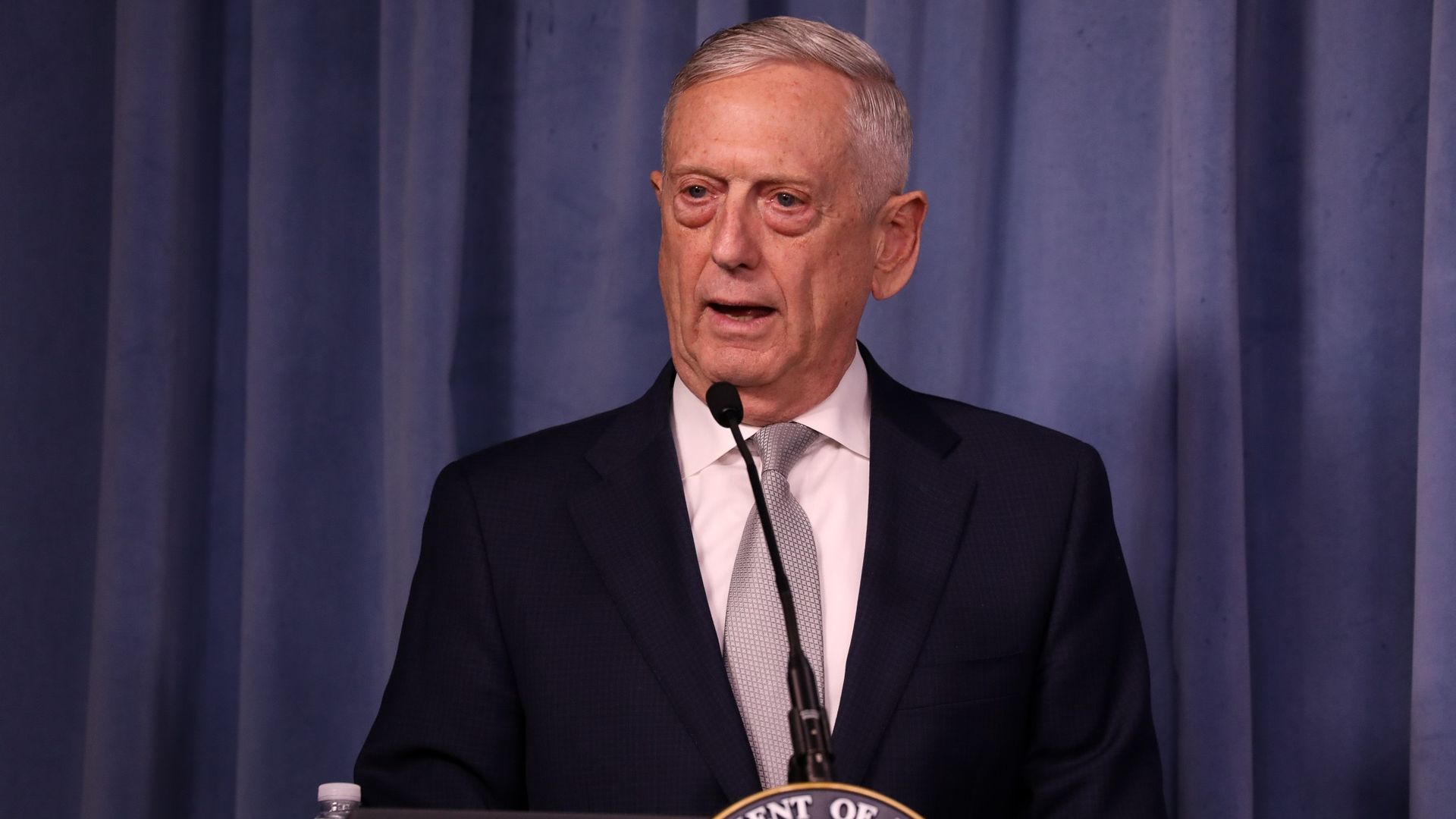Dec 21, 2018 - Politics & Policy
Expert VoicesMattis exit further destabilizes Trump administration's foreign policy
Add Axios as your preferred source to
see more of our stories on Google.

Defense Secretary Mattis at the Pentagon on Nov. 28, 2018. Photo: Yasin Ozturk/Anadolu Agency/Getty Images
